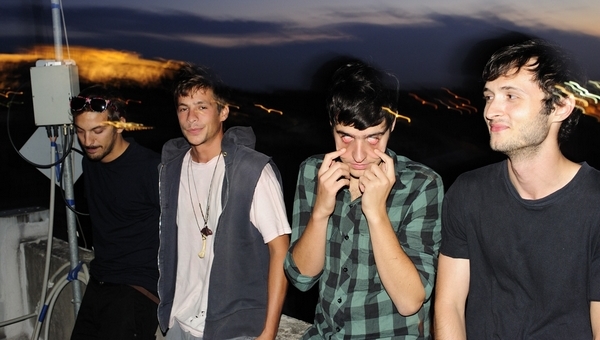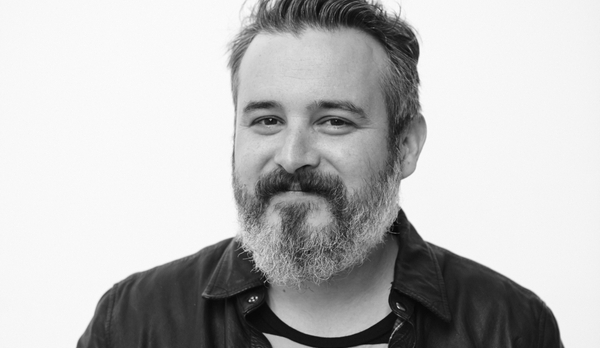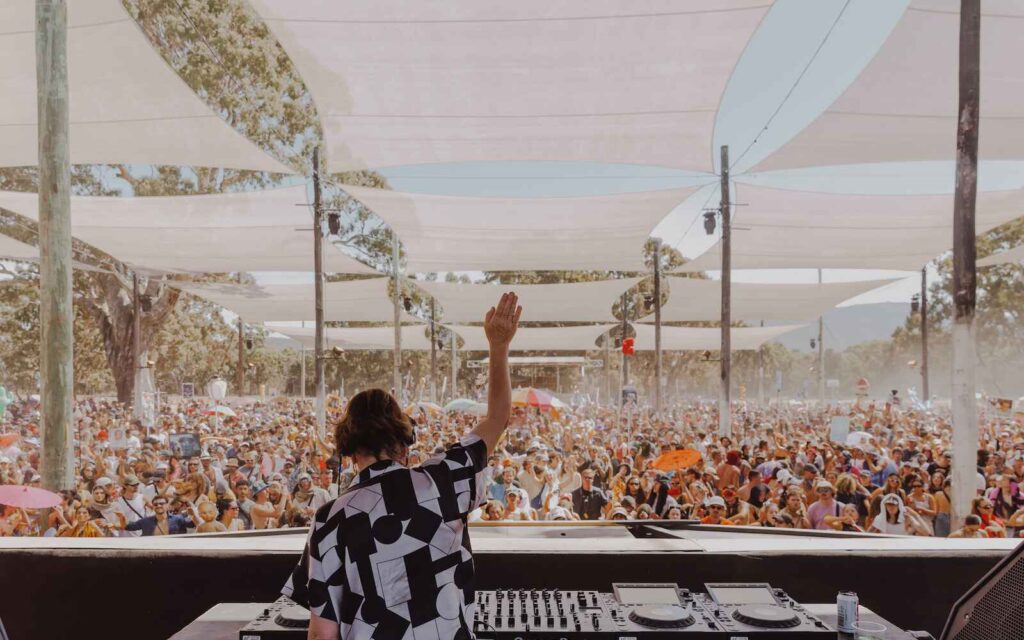Acid Baby Jesus came into view in 2011 when US-via-Amsterdam garage rock stable Slovenly Recordings issued the band’s self-titled debut full length. Catching the attention of underground rock fans around the globe, the band hit the road through Europe and the US, supporting the likes of The Black Lips and gracing the stage at Austin Psych Fest. However, despite the swelling interest, it wasn’t until last November they delivered their second full length, Selected Recordings.
Given its title, it was unclear whether the new release was another album or a collection of demos. However, never mind the band’s intentions, as the reverb soaked, brazenly energetic releasecertainly sounded like an album. Ahead of Acid Baby Jesus’ first trip Down Under, frontman Noda Pappas fills us in on the genesis of Selected Recordings.
“We started recording it as an album, but had to go on a long USA tour in the middle of recording,” he says. “By the end of the tour our guitar player and co-founder of the band quit, so we all went in our different directions doing our own thing for about a year. After that we listened to the scraps of recording material we had here and there and kind of got everything together creating a Frankenstein sort of album. We had a lot of fun recording it in my home studio in a very experimental sort of way. Even though I was having a hard time, I like the album.”
Since the beginning, Acid Baby Jesus have taken influence from US/UK garage, psych and hard rock, as well as Greek folk music. The band’s voracious listening habits are on display throughout Selected Recordings, which features 11 Acid Baby originals plus a cover of Trouble Maker by Zambian psych guy Chrissy Zembo Tembo.
“It’s just so exciting to play around with new ideas and sounds,” says Pappas. “I think in the end it sounds like our own band evolving. I like how bands like The Rolling Stones have kind of their own eras of what they were experimenting with at the time but still sound like the same band.
“[Making Selected Recordings] was a two year period so a lot of music has influenced the record. Jazz is really our common thread in the band, but also we were listening to a lot of Greek folk music like rebetiko. At the time I remember listening to a lot of Wu-Tang as well and I can hear that in the album. Angus MacLise, Sonny Sharrock, John Coltrane, Pharaoh Sanders, Warsaw are some as well.”
The official album bio, which is displayed on the Slovenly Records website, spurns the “echo box” and “lava lamp clichés” of contemporary psych rock. Acid Baby Jesus are determined to rise above such pedestrian fare, with no great concern for where that places them on the genre map.
“I like to think [our music]’s transcendental and elevating,” says Pappas. “I don’t really like beige music, you know? I like colours and energy and magic in music, so that’s how we go about it usually. As for the psych rock thing, I really don’t know what it means anymore. It’s a bit confusing.”
While Pappas is puzzled by the term psych rock, the experience of psychedelic sensations plays a role in his creative process. He conceives the majority of the band’s compositions, but he refrains from showing anything to the rest of the band unless he feels that aforementioned transcendence.
“It usually starts as a folk song, played acoustically and then presented to the rest of the band, which takes it to a different level. Anything could make it psychedelic, even a small play on words or one chord that sticks out from the rest. I find comfort in things like that in the song, and they keep it fresh for me and I can always go back to the initial idea and feeling of the song. I think it’s like that for all of us in the band.”
Although there’s been plenty of uninteresting so-called psychedelic music emerging in recent years, underground psych and garage rock are enjoying booming popularity. However, Pappas is confident in the peculiarities that set his band apart from their peers.
“It kind of clicked with us during our first US tour that we are definitely not like all the other bands, because we are from a completely different place. That felt liberating and gave us a freedom to do what feels natural. I still don’t think we have pinpointed a sound that can completely characterise us. We’re looking for it like the holy grail.”
Despite being distinguishable from many of the other acts toiling in a similar field, Acid Baby Jesus’ music will inevitably spark thoughts of ‘60s and ‘70s psychedelia. However, it’s still very exciting to hear, giving credence to the idea that guitar driven music remains an innovative artistic force.
“Guitar and song will never die because they are such a self contained way of expressing one’s self. It just works like a charm. Who can beat that?”
BY AUGUSTUS WELBY







